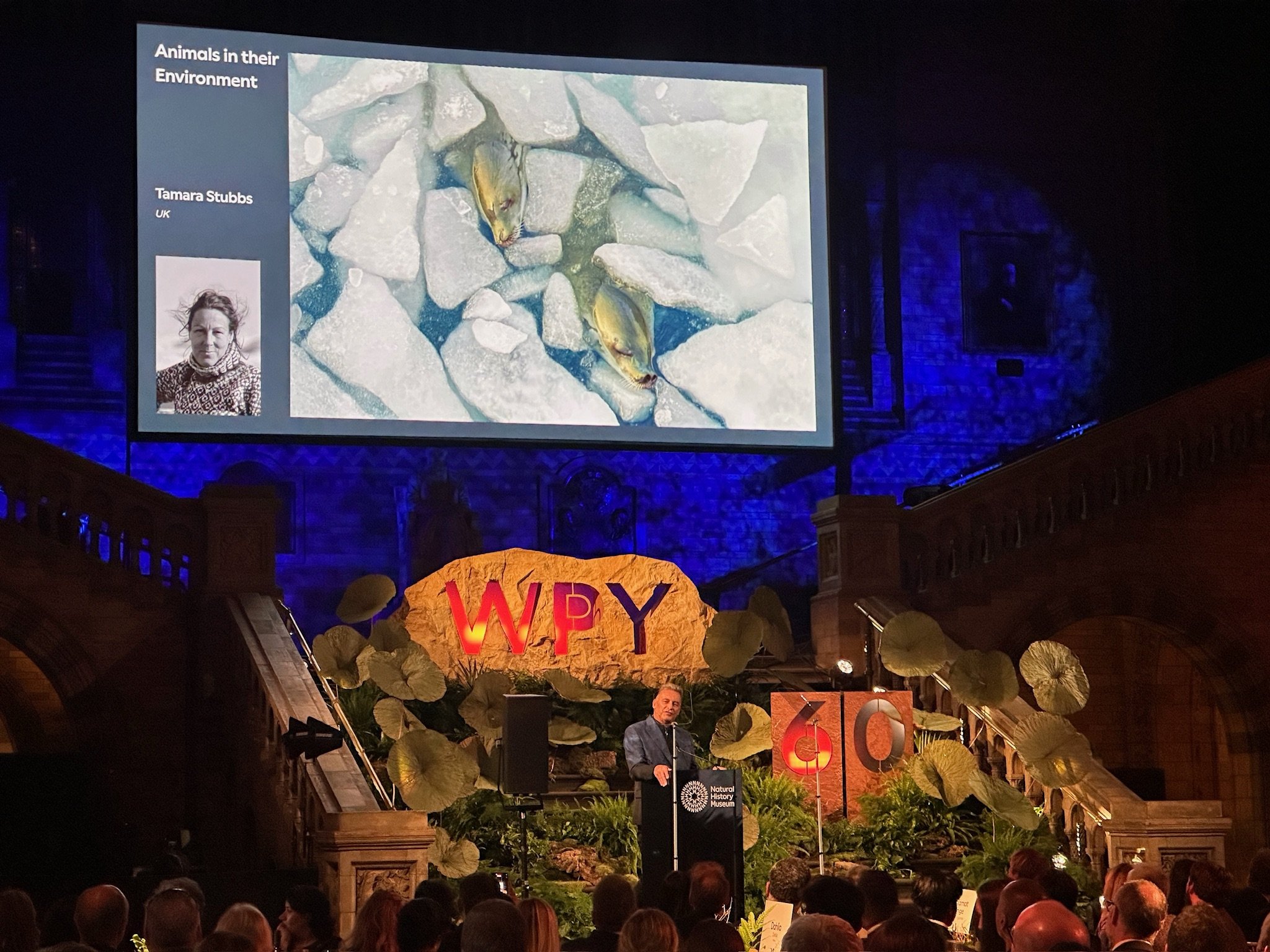Wildlife Photographer of the Year, WPY60 - Awarded Highly Commended in ‘Animals in their Environment’
‘Going with the Floe’: Weddell Sea, Antarctica has been awarded Highly Commended in the category ‘Animals in their Environment’ in Wildlife Photographer of the Year, WPY60.
These crabeater Seals were asleep in the broken ice besides our ship 8 weeks into our Expedition.
We were deep in the cold, icy Weddell Sea ‘gyre’, one of the world’s most inaccessible places, and close to where Shackleton’s ship ‘Endurance’, beset in ice, sank in 1915. Whist we were stationary completing a science task, the seals that had been curiously following us for weeks, got closer still. Playing in the water on the sunny side of the ship and sleeping on the shady side. Watching the sleeping seals, you would only see the tips of their nostrils poking out at the water’s surface in the crystalizing ice, though every now and then, their heads briefly rose up for a deeper breath of air. Above the sound of the ships hum, and the bitterly cold wind, you could hear them comfortably snoring. These two heads rose up at the same time, giving me this ethereal moment.
I love feeling the energy of wilder places, and I want enable people to connect to, and love our planet. We humans are all equal partners of nature and what makes up nature, which we can easily forget. We have an imbalance to address, as our human world has got into the habit of taking more than we need, and more than we are intitled too. As individuals we hold the power in our purse to make changes, our choices, the individual person, you and me, changes the world, there is no other overseer.
With this picture in mind: Crabeater seals, though are not rare or endangered, their specific environment is under greater stress, not just with climate change, but increased, year on year, industrial fishing.
Contra to their name, they don’t eat crabs but mainly feed on Krill. One type of fishing in the Southern Ocean causing wildlife hardship is Krill fishing. Enormous Krill fishing vessels are netting more and more krill, emptying great pockets in the densest krill areas, which by no coincidence, is where you will find the krill dependent wildlife living and breeding. This way of fishing for Krill is causing starvation in some-places, and has been linked to a marked rise in unsuccessful breeding. Krill is a key species, feeding amongst others, whales, seals, penguins, sea-birds and fish, and is fished out for use as fertiliser, health oils, and pet food. What are we doing? I urge you to actively support the banning of krill fishing in these wildlife populous areas, vote with your purse, and campaign for extending and creating Marine Protected Areas.
WPY60 Award Ceremony in October 2024 at the Natural History Museum, London
